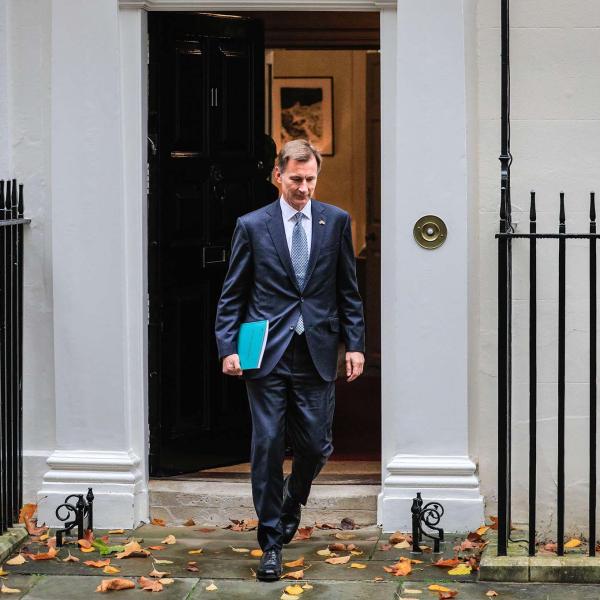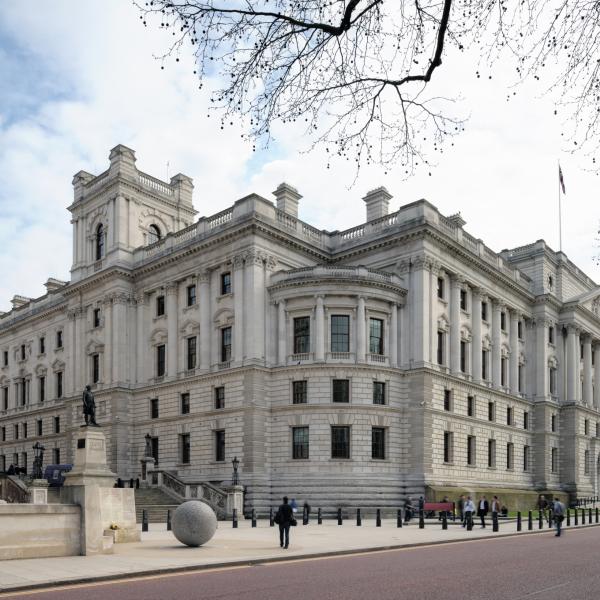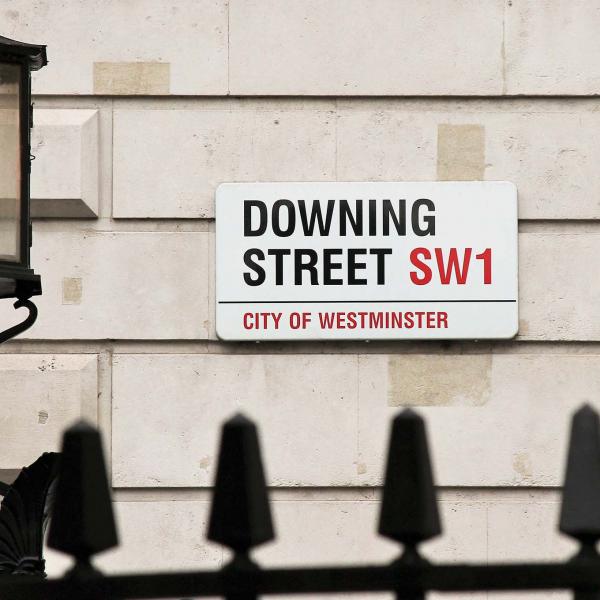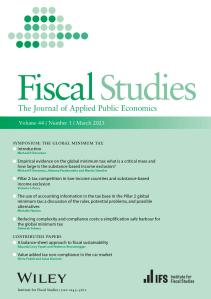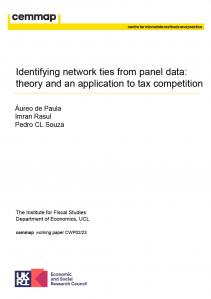Corporate tax has rarely excited the imagination of the public as much as in recent years. This week Google has become the latest company to attract widespread anger over the amount of tax it has paid in the UK. The sense that there are some big, profitable companies paying relatively little in corporate tax has led many to try to allocate blame. Are multinationals simply behaving badly? Is HMRC cutting sweetheart deals with favoured companies? Have politicians failed in their task of writing the tax rules?
In an attempt to shed some light on these issues, a new paper by IFS researchers published today sets out how the current tax system seeks to tax corporate profits, what problems this can lead to and how the OECD’s two year Base Erosion and Profit Shifting (BEPS) project has sought to prevent tax avoidance. This paper is a pre-released chapter from the February 2016 IFS Green Budget, produced in association with ICAEW and funded by the Nuffield Foundation and to be launched on Monday 8th February.
The most important question relates to what we’re trying to tax. The current tax rules are not designed to tax the profits from UK sales. They’re certainly not designed to tax either revenue or sales generated in the UK. They are instead designed to tax that part of a firm’s profit that arises from value created in the UK. That is the principle underlying all corporate tax regimes across the OECD. The trouble is that calculating how much profit arises from value added in any individual country can be very tricky, and is often open to honest dispute.
Multinationals operate across tax jurisdictions and create profits from activities in many countries. Working out how to allocate profits to different jurisdictions is difficult. In practice, countries have long agreed to divvy up profits according to where the underlying value was created. But there is often no single ‘correct’ answer to how much profit should be taxed in the UK. For example: if a worker in the UK and a worker in Ireland collaborate in arranging and concluding a sale, or in designing a new product, or writing a piece of software, how much of resulting income should be attributed to UK activities?
The tax rules seek to provide an answer to this. Two elements of the rules are key. Permanent establishment rules define when a firm has a taxable presence in a country. Controversy often arises when a firm has a large revenue stream in the UK, but is not deemed to have an associated presence here for tax purposes. Rules around this will change following the BEPS process and it will become more difficult for companies to claim that they do not have a permanent establishment, but this can’t change retrospectively. Transfer pricing rules dictate the prices that a firm can charge for a transaction – including payments for services or for the use of ideas – that happens between two parts of the same firm that are located in different tax jurisdictions. These are the rules that determine taxable profit allocation. Yet the rules can never be detailed enough to set out what the outcome should be in every possible case. This creates room for disagreement over what the tax rules mean. This is why HMRC is often engaged with multinationals about how much tax they pay: not because they are busy cutting special deals, but because they are trying to apply the tax rules in a consistent manner.
Multinationals are in a good position to be able to employ hordes of tax advisors that help them to conclude any uncertainty in way that leads to lower tax bills, and to take advantage of any loopholes to avoid tax. Some of those loopholes are well known and many exist in other countries’ tax regimes. For example, the well documented “Double Irish” refers to differences between Irish and US tax laws that allow US multinationals to shift profits out of Ireland to tax havens such as Bermuda. These kinds of gaps in tax systems can create opportunities for tax avoidance on a grand scale. There is literally nothing the UK government can do unilaterally about some of these loopholes.
If the outcomes produced by the current tax rules are deemed "derisory” then there are at least two options that are more helpful than complaining that firms are behaving badly.
First, governments could improve the current tax rules to prevent certain avoidance behaviours. The OECD has been seeking to foster collaboration through the BEPS project to do exactly this. The UK has already acted to prevent some types of avoidance structures and, going forward, will join other countries in trying to prevent tax avoidance by changing the rules that determine profit allocation. The “Double Irish” structure described above will come to an end by 2020 as a result of international pressure. On Thursday, the European Commission announced new proposals that build on the BEPS project and seek further adjustments to EU tax rules to crack down on tax avoidance. Since the opportunities for avoidance arise at the boundaries between tax systems, a multilateral approach makes sense. However, governments can face a trade-off when deciding how to act: changing tax rules can help crack down on avoidance but come at the cost of reducing a country’s competitive position. Many of the actions under BEPS are merely “recommended”. Countries are under no obligation to implement them if they think they will damage their own competitiveness. It remains to be seen how the UK government, among others, will make that trade off.
Second, it is open to government to pursue a much more radical course of action: to scrap the corporate tax system as we currently know it and write a new one that better serves our objectives. The world has changed enormously since the current system was designed in the 1920s. Companies’ activities have become more global, digital and intangible. A system that allocates profits as if they were earned by separate companies will always create tensions. We could decide to live with those tensions as best we can, or we could go back to the drawing board and design a tax system based on how the world currently looks. For example, we could tax companies based on where their sales occur rather than where their profits are deemed to have arisen. We may not be ready for such radical change yet, but depending on how well the newly patched up international corporate tax system works over the next few years we may find it is worth considering whether a new set of tensions would produce a more agreeable outcome.
Notes
1. 'Corporate tax avoidance: tackling Base Erosion and Profit Shifting' by Helen Miller and Thomas Pope is a pre-released chapter from the IFS Green Budget 2016, edited by Carl Emmerson, Robert Joyce and Paul Johnson.
2. The full Green Budget 2016 publication will be launched at 10:00 on Monday 8 February 2016 at Guildhall, London. Please email @email if you wish to attend;
3. ICAEW is a world leading professional membership organisation that promotes, develops and supports over 144,000 chartered accountants worldwide. We provide qualifications and professional development, share our knowledge, insight and technical expertise, and protect the quality and integrity of the accountancy and finance profession.
As leaders in accountancy, finance and business our members have the knowledge, skills and commitment to maintain the highest professional standards and integrity. Together we contribute to the success of individuals, organisations, communities and economies around the world. Because of us, people can do business with confidence.
ICAEW is a founder member of Chartered Accountants Worldwide and the Global Accounting Alliance.
4. The Nuffield Foundation is an endowed charitable trust that aims to improve social well-being in the widest sense. It funds research and innovation in education and social policy and also works to build capacity in education, science and social science research. The Nuffield Foundation has funded this project, but the views expressed are those of the authors and not necessarily those of the Foundation. More information is available at nuffieldfoundation.org.
We are delighted to have produced this year’s Green Budget in association with ICAEW and with funding from ICAEW and the Nuffield Foundation.
Additional analysis will be provided by ICAEW and Oxford Economics.
We are also grateful to the Economic and Social Research Council for funding much of the day-to-day research at IFS that underpins the analysis in this report.


